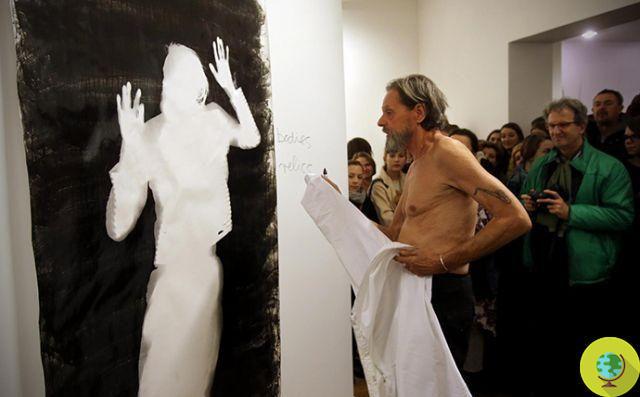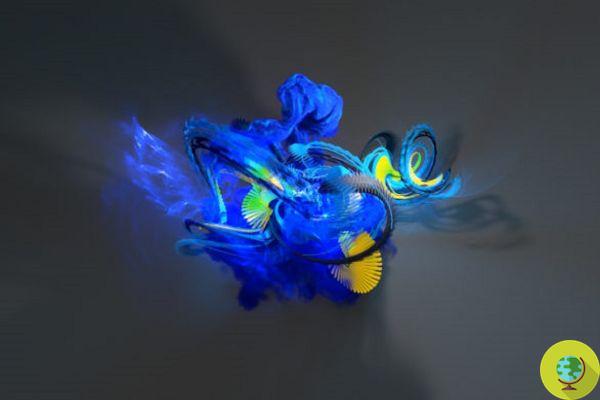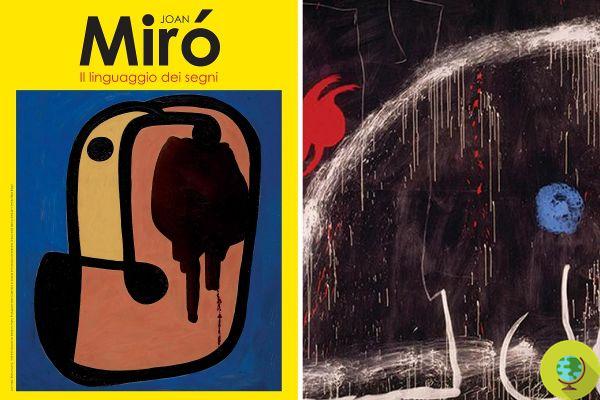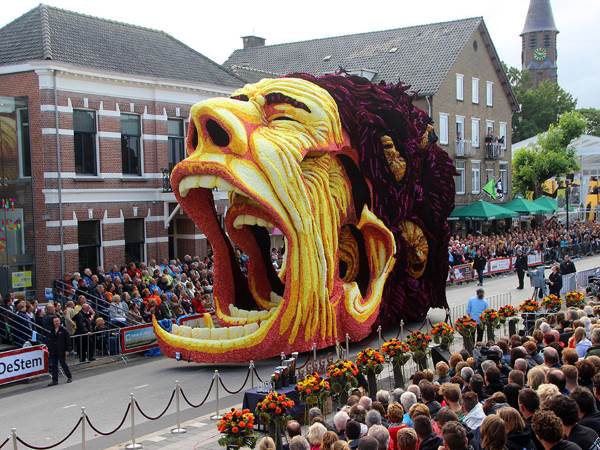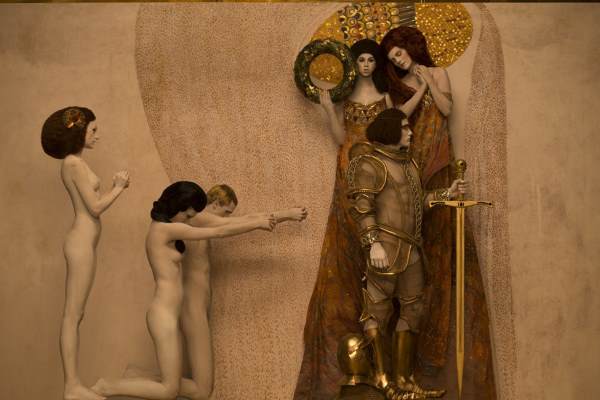A Portuguese who composed his first writings in English, a multifaceted, an impatient, a restless one. Who was Fernando Pessoa.
He is about to end up run over, his mother saves himA Portuguese who composed his first writings in English, a multifaceted, an impatient, a restless one. Fernando Pessoa, , born Fernando António Nogueira Pessoa, author of the most beautiful verses of 1900, has something enigmatic around him, which invests and invades a large part of his life and works.
In addition to being the major author of the so-called heteronymy, the literary critic Harold Bloom called him, together with Pablo Neruda, the most representative poet of the twentieth century.
He drank a lot over his years, so much so that he died at age 47 of liver cirrhosis. The last sentence he wrote is in English “I know not what tomorrow will bring”.
Index
Fernando Pessoa the story
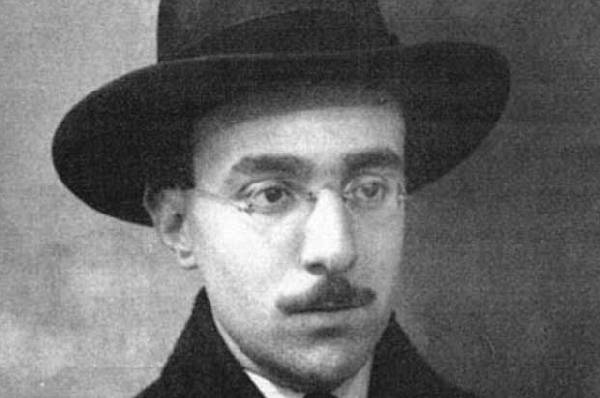 Photo source
Photo source
“I don't know where tomorrow will lead us”, and this Fernando Pessoa thought perhaps not only at the end of his days. He was born in Lisbon on June 13, 1888 to Madalena Pinheiro Nogueira and Joaquim de Seabra, a music critic. But his father died very soon of tuberculosis and so in 1895 he was forced to follow his mother to South Africa, this time the wife of Commander Joào Miguel Rosa, Portuguese consul in Durban.
He studied in Africa, according to a British-style education, up to the entrance exam at the University of Cape Town and until he reached that perfect knowledge of English with which he would immediately write poetry.
In 1905 he finally returned to Lisbon where he continued the production of poetry in English. He also matriculated, but dropped out immediately, to the upper course of letters at the University of Lisbon. It was then that he came into contact with important writers of Portuguese literature and began following the work of Cesário Verde and Father Antônio Vieira's sermons on the Fifth Empire. He later employed, a job he would keep for life, as a French and English correspondent for various commercial firms, despite having active collaborations with several magazines (it was in this period that, in 1920, a story with Ophelia Queiroz began, employed in one of the import and export firms for which Fernando worked. Probably the only sentimental adventure of his life, which ended in 1929).
Fernando Pessoa was admitted in November 1935 to the hospital of Luís dos Franceses for one liver crisis due to alcohol abuse and died on November 30 at the age of 47.
Fernando Pessoa, writings and literary activity
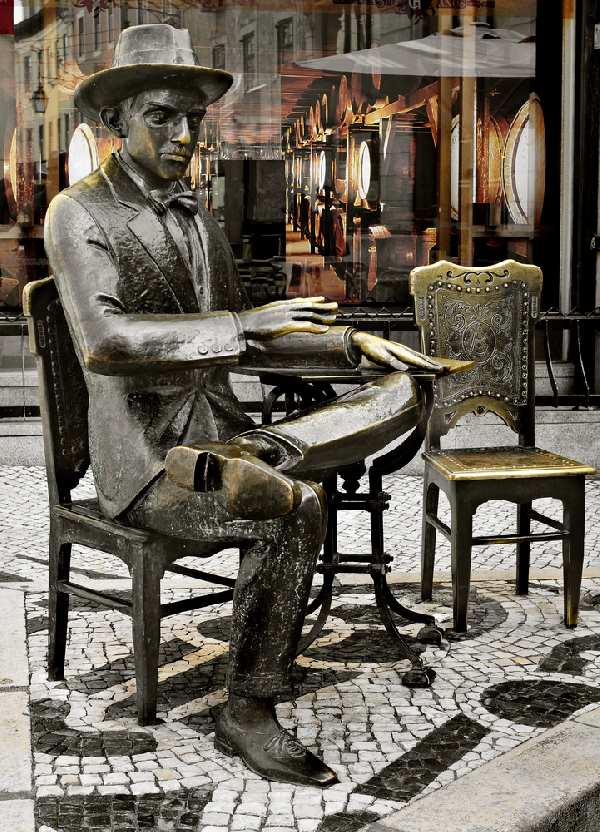
It is 1913, at the age of 25, when Pessoa, after having lived the experience of nostalgia by Teixeira de Pascoaes (a symbolist-inspired movement with mystical-pantheistic and nationalist connotations), launches the "paulismo"(From the first word - Pauis - with which he begins the poem" Impressions of the twilight ", published in February 1914. At the same time he begins to collaborate with various magazines, such as" A Aguia "and" Portugal Futurista ". their first appearance i etheronymy Alberto Caeiro, Ricardo Reis and Álvaro de Campos, in addition to the aforementioned Chevalier de Pas.
In 1915 with Mário de Sá-Carneiro, Almada Negreiros, Armando Córtes-Rodriguez, Luis de Montalvor, Alfredo Pedro Guisado and others, he created the avant-garde magazine “Orpheu”, which traces the tones of futurism, paulism and cubism. The magazine's work did not last long, also because it was immediately plunged into a sea of controversy in the Portuguese literary environment. Since then, Fernando Pessoa has also been interested in esotericism and theosophy, giving a different imprint to the works to come.
In 1926, in an interview with a Portuguese newspaper, after the military coup that opens the doors to the Salazarian regime, Fernando Pessoa exposes his theories of the "Fifth Empire", which concern the actualization of the prophecies of Bandarra (the cobbler di Trancoso) written in the first half of the fifteenth century, according to which the king Don Sebástian, given up for dead in 1578 in the battle of Alcazarquivir, would have returned with the intention of establishing a kingdom of justice and peace. It is precisely the "Fifth Empire", which Portugal will necessarily have to implement with culture and not militarily or politically.
In 1934, Fernando personally edited and published "Message”, The only collection of verses in Portuguese. Only after his death, in fact, will the publication of his work take place, which includes writings on theology, occultism, philosophy, politics, economics and other disciplines.
In 1942, “Poesias de Fernando Pessoa” was published, followed by “Poesias de Álvaro de Campos” (1944), “Odes de Ricardo Reis” (1946), “Poemas de Alberto Caeiro” (1946), “Poemas dramaticos” ( 1952), “Unpublished poems” (1955 and 1956), “Quadras à popular taste” (1965), “Novas unedited poetry” (1937), English “Poems” (with the translation by Jorge de Sena, Adolfo Casals Monteiro and José Blanc de Portugal, 1974), “Book of Disquiet” (1982).
Heteronymy, the creation of Fernando Pessoa the restless
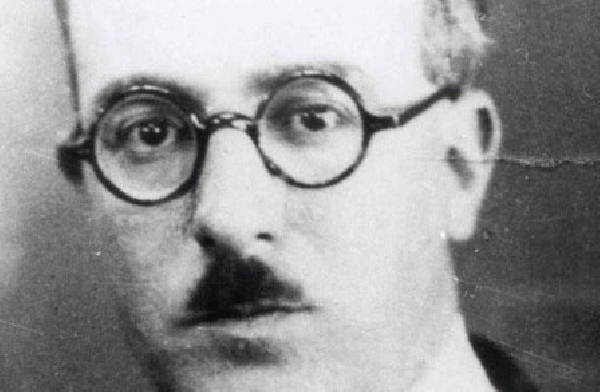
He was only 6 years old and Fernando already created his own first pseudonym, that Chevalier de Pas. An "event" that Fernando himself will later tell Adolfo Casais Monteiro in a letter dated 13 January 1935, in which he explains precisely the origin of the heteronomers.
"[...] I remember, thus, what seems to me to have been my first heteronym or, better, my first non-existent acquaintance: a certain Chevalier de Pas from when I was six years old, through whom I wrote letters to myself, and whose figure, not entirely vague, still strikes that part of my affection that borders on nostalgia. "
From the reading of Pessoa's work, a complex personality emerges and is dictated by that fervent imagination that tended to create a fictitious world around itself. He never signed his name - he published only five volumes of poems under his own name: 35 Sonetts (1918), Antinous (1918), English Poems I-II and English Poems III (1921) in English; Mensagem (1934) in Portuguese - but he invented heteronyms: not pseudonyms but “authentic and complete poetic personalities”.
It is in this way that the Portuguese author represented the'be restless, those turbulences of the man of the '900, hiding his identity under a multitude of heteronyms (more than 40), a sort of poetic alter ego complete with biographies and his own style. With the heteronyms of Alberto Caeiro, Ricardo Reis, Álvaro de Campos put down poems and prose, starting with that childhood Chevalier de Pas, through which Fernando as a small wrote letters to himself. Instead, he has an Anglo-Saxon name, Alexander Search, the correspondent created by his pen while he lived in South Africa, a character that will evolve in the following years to become one of his heteronyms of him.
One way, that of continually creating alter egos, which somewhat responds to the Portuguese author's need to try to study his characters and understand what he himself lacks, in a sort of nosce te ipsum that he does. by Pessoa a great protagonist of an almost existentialist literature. This is exactly what he does in his “Book of Disquiet”, in which he writes down his reflections on what he defines as the “monotonous and limiting condition of man”.
Fernando Pessoa, the famous phrase
- I'm nothing,
I'll never be anything
I can not want to be nothing.
Apart from that, I have all the dreams in the world inside me.
(Tobacco shop, Poems by Álvaro de Campos) - Everything is imperfect, there is no sunset so beautiful that it cannot be more.
(The Book of Disquiet) - Loneliness discourages me; company oppresses me.
(The Book of Disquiet) - Sit in the sun.
Abduct and be king of yourself.
(One multitude) - What do I know of what I will be, I who do not know what I am?
(Poems by Alvaro de Campos) - The only way to get along with life is to disagree with ourselves.
(The Book of Disquiet) - Two people mutually say "I love you", or think so, and each means a different thing, a different life, even perhaps a different color or a different aroma, in the abstract sum of impressions that constitutes the activity of the soul.
(The Book of Disquiet) - We never love anyone. We just love the idea we have of someone. What we love is our concept: in short, we love ourselves.
(The Book of Disquiet) - I have done nothing but dream. It was this, and only this, the meaning of my life. I have never had any real concern other than my inner life. The greatest pains of my life subside when, by opening the window that gives inside of me, I can forget myself at the sight of its movement
(The Book of Disquiet) - If at least I was so interesting from the outside
as I am inside… ..!
(A crowded loneliness) - However much we strip ourselves of what we have worn, we never reach nudity, because nudity is a phenomenon of the soul, and not a taking off one's dress.
(The Book of Disquiet) - Being a poet is not my ambition.
It's my way of being alone.
(One multitude) - I sleep when I dream of what is not there; I wake up when I dream of what can exist.
(The Book of Disquiet) - I always live in the present. I don't know the future. I no longer have the past. The one weighs on me as the possibility of everything, the other as the reality of nothing. I have no hopes or nostalgia.
(The Book of Disquiet) - If I write what I feel it is because in this way I decrease the fever of hearing.
(The Book of Disquiet) - Happiness is outside of happiness. There is no happiness except with awareness. But the awareness of happiness is unhappy, because knowing yourself happy is knowing that you are going through happiness and that you will have to leave it immediately. To know is to kill, in happiness as in everything.
(The Book of Disquiet) - My God, my God, who am I witnessing? How many am I? Who am I? What is this gap between me and me?
(The Book of Disquiet) - Death is the curve of the road,
dying is just not being seen.
(One multitude) - I have all the conditions to be happy, except happiness.
(Education of the Stoic)
- Only one thing amazes me more than the stupidity with which most men live their lives: the intelligence that is in this stupidity.
(The Book of Disquiet) - There are moments when everything tires us, even what could rest us, what tires us because it tires us; what could rest us because the idea of getting it tires us.
(The Book of Disquiet) - To live is to die, because we do not have one more day in our life without, at the same time, one less day.
(The Book of Disquiet) - The boredom ... Thinking without thinking, with the tiredness of thinking; to feel without feeling, with the anguish of feeling; not wanting without not wanting, with the nausea of not wanting.
(The Book of Disquiet) - The real evil, the only evil, are social conventions and fictions, which overlap with natural reality.
(The anarchist banker) - What distinguishes people from each other is the strength to make it, or to let fate do it to us.
(The Book of Disquiet) - I don't know who I am, what soul I have.
When I speak sincerely I don't know with what sincerity I speak. I am variously other than an I that I don't know if it exists.
(One multitude) - God has no unity. How could I have it?
(Esoteric poems) - The world belongs to those born to conquer it, and not to those who rightfully dream of being able to conquer it.
(Tobacco shop, Poems by Álvaro de Campos) - The heart, if it could think, would stop.
(The Book of Disquiet)
Germana Carillo








